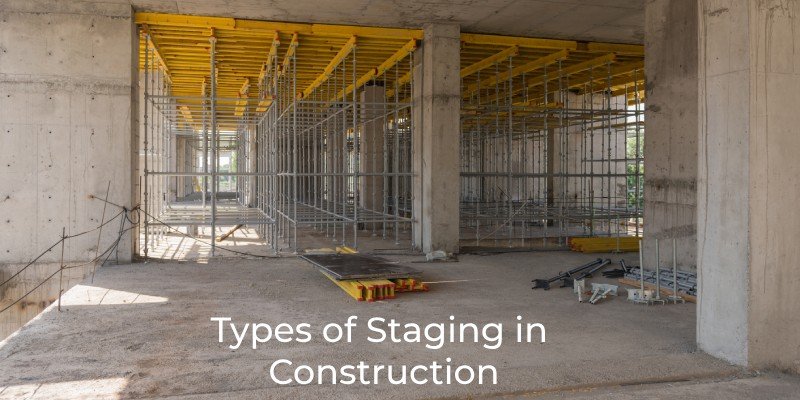Hiring a Home Builder: Key Questions You Must Ask
Building your dream home is an exciting endeavor, but it requires careful planning and consideration, especially when it comes to selecting the right home builder. With numerous contractors vying for your project, it’s essential to ask the right questions to ensure you make an informed decision. In this article, you will explore the Questions to Ask a Home Builder Before Hiring.
Questions to Ask a Home Builder Before Hiring
Before delving into specifics, it’s important to understand the significance of selecting the right home builder.
Here are the important Questions to Ask a Home Builder Before Hiring based on various scenario:
1. Experience and Portfolio
A home builder’s experience and portfolio are key indicators of their expertise and capabilities.
What to Look for in a Home Builder’s Experience:
- How long have you been in the construction industry?
- Have you worked on projects similar to mine?
- Can you provide examples of your past work?
Assessing the Builder’s Portfolio:
- May I see photos or visit homes you’ve built?
- Can you provide references from past clients?
2. Licensing and Insurance
Licensing and insurance are fundamental aspects of ensuring the credibility and accountability of a home builder.
Importance of Proper Licensing:
- Are you licensed to operate in this state?
- Do you hold any certifications or accreditations?
Understanding Insurance Coverage:
- What types of insurance do you carry?
- Are your subcontractors also insured?
3. References and Testimonials

References and testimonials provide valuable insights into a home builder’s reputation and reliability.
Seeking References from Past Clients:
- Can you provide a list of references I can contact?
- How do you handle negative feedback or complaints?
Evaluating Testimonials:
- Do you have any online reviews or testimonials?
- Can I speak with previous clients about their experience?
4. Communication and Transparency
Effective communication and transparency are essential for a smooth and successful construction process.
Establishing Communication Channels:
- How often will we communicate throughout the project?
- What methods of communication do you prefer?
Importance of Transparency in the Building Process:
- Will I have access to project updates and timelines?
- How do you handle changes or unforeseen issues?
5. Project Timeline and Schedule

A realistic project timeline and schedule are vital for managing expectations and ensuring timely completion.
Discussing Project Timeline Expectations:
- How long do you estimate the project will take?
- What factors could potentially delay the construction process?
Ensuring Adherence to a Construction Schedule:
- How do you manage subcontractors and coordinate work?
- What happens if deadlines are not met?
6. Cost Estimation and Payment Terms
Understanding the cost estimation and payment terms is essential for budget planning and financial transparency.
Understanding Cost Estimates:
- Can you provide a detailed breakdown of costs?
- Are there any potential additional expenses I should be aware of?
Negotiating Payment Terms:
- What is your payment schedule?
- Do you offer any financing options or payment plans?
7. Quality of Materials and Workmanship
The quality of materials and workmanship directly impacts the durability and aesthetics of your home.
Inquiring About Materials Used:
- What type of materials do you typically use?
- Can I request specific materials or upgrades?
Assessing the Quality of Workmanship:
- How do you ensure quality control during construction?
- Do you offer any warranties on your work?
8. Warranty and After-Sale Services
Warranty and after-sale services provide homeowners with assurance and peace of mind.
Clarifying Warranty Terms:
- What type of warranty do you offer on your work?
- How do I request repairs or address issues after completion?
Availability of After-Sale Services:
- Will you provide any maintenance services after the project is finished?
- How do I contact you for future assistance?
9. Building Codes and Permits

Adherence to building codes and obtaining necessary permits are legal requirements that ensure compliance and safety.
Ensuring Compliance with Building Codes:
- How familiar are you with local building codes and regulations?
- Will you obtain all necessary permits for the project?
Obtaining Necessary Permits:
- Who is responsible for obtaining building permits?
- How long does the permit approval process typically take?
10. Green Building Practices
Green building practices promote sustainability and energy efficiency in construction.
Inquiring About Sustainable Building Practices:
- Are you familiar with green building techniques?
- Can you incorporate energy-efficient solutions into the design?
Incorporating Energy-Efficient Solutions:
- What measures do you take to reduce the environmental impact of construction?
- Are there any incentives or rebates available for green building projects?
11. Subcontractors and Team
A skilled and reliable team, including subcontractors, is essential for the successful execution of a construction project.
Understanding Subcontractor Roles:
- Do you work with subcontractors, and if so, how do you select them?
- Will there be a project manager overseeing the construction?
Assessing the Builder’s Team:
- Who will be my primary point of contact during the project?
- How many people will be working on-site at any given time?
12. Dispute Resolution Process
Despite careful planning, disputes or disagreements may arise during the construction process.
Establishing a Dispute Resolution Mechanism:
- What steps are in place to resolve conflicts or disagreements?
- Have you ever encountered disputes with clients, and how were they resolved?
Addressing Potential Conflicts Upfront:
- How do you handle changes to the original plans or unexpected challenges?
- What happens if we disagree on certain aspects of the project?
13. Contract and Legalities
Clear and comprehensive contract terms are essential for protecting both parties’ interests and ensuring a smooth construction process.
Reviewing Contract Terms:
- Can you provide a copy of the contract for review?
- Are there any clauses or terms I should pay particular attention to?
Seeking Legal Advice if Necessary:
- Should I consult with a lawyer before signing the contract?
- What recourse do I have if the terms of the contract are not met?
14. Final Inspection and Sign-Off
The final inspection and sign-off mark the culmination of the construction project and the transition to homeownership.
Conducting a Thorough Final Inspection:
- What is involved in the final inspection process?
- Will you address any issues identified during the inspection before completion?
Sign-off Process and Closing Remarks:
- How do we finalize the project and ensure all deliverables are met?
- Can I expect a formal sign-off process once the project is complete?
Now equipped with these essential questions and considerations, you can confidently evaluate and select the right home builder for your project, ensuring a seamless and successful construction journey.
Conclusion
We have provided a few important Questions to Ask a Home Builder Before Hiring. Selecting a home builder is a crucial step in turning your dream home into reality. By asking the right questions and conducting thorough research, you can find a builder who aligns with your vision, budget, and expectations. Remember to prioritize communication, transparency, and quality throughout the construction process to ensure a positive experience and a home you’ll love for years to come.
FAQs
How do I find reputable home builders in my area?
Finding reputable home builders can be done through various channels, including referrals from friends or family, online research, and checking with local homebuilders’ associations.
What should I look for in a home builder’s portfolio?
When reviewing a home builder’s portfolio, look for diversity in projects, quality of craftsmanship, and attention to detail. Pay attention to whether they have experience in projects similar to yours.
Is it essential for a home builder to be licensed and insured?
Yes, hiring a licensed and insured home builder is crucial for your protection. Licensing ensures that the builder meets certain standards, while insurance provides coverage in case of accidents or damages during construction.
How do I ensure transparency and communication throughout the construction process?
Establish clear communication channels with your home builder from the beginning. Regular updates, scheduled meetings, and an open line of communication can help ensure transparency and address any concerns promptly.
What should I do if I encounter issues or disputes with my home builder?
If you encounter issues or disputes with your home builder, try to resolve them amicably through communication first. If that fails, refer to the dispute resolution process outlined in your contract or seek legal advice if necessary.





